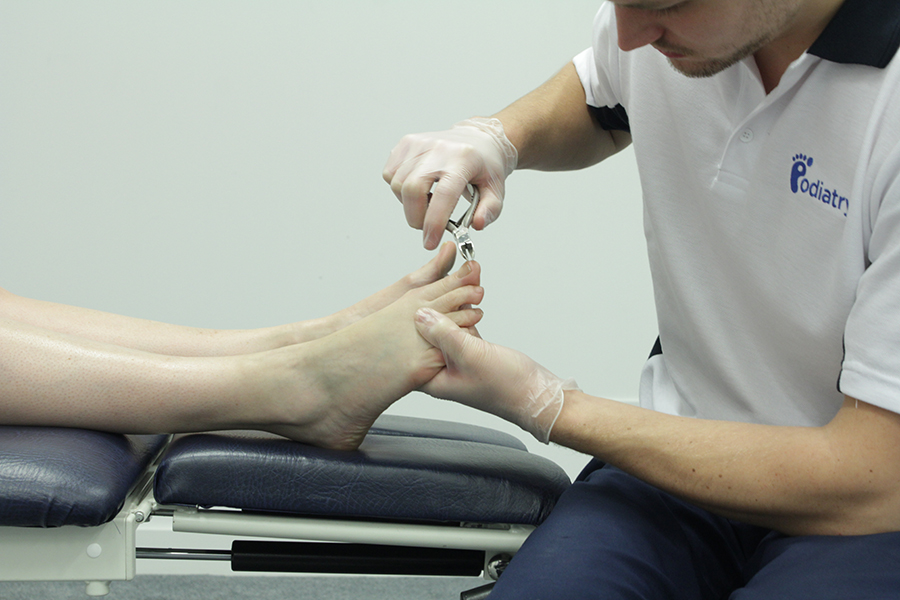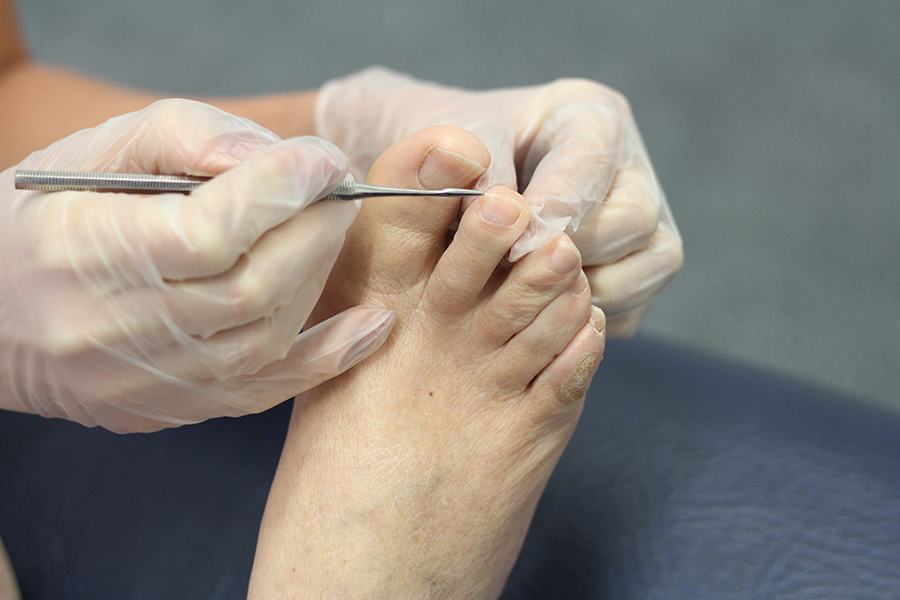Verrucae
Download our Verruca Treatment information pack

Verruca
Treatment
Download our SWIFT Verruca Treatment information pack

SWIFT Verruca
Treatment
Download our Verrutop information pack

Verruca
Treatment
What are verrucae?
A verruca is a wart on the foot which is caused by a virus. Verruca on the feet appear flattened in shape when compared to other warts; this is because of the pressure caused by standing and walking. A verruca is a localised viral infection that affects the epidermis (the top layer of skin), caused by the Human Papilloma Virus (HPV). A common misconception is that verruca have roots, this is false. Verrucae do not have roots, instead what 'appears' to be the root is actually a cluster of tiny blood vessels.
What causes verrucae?
The HPV virus invades the skin through direct (skin to skin) or indirect contact (e.g. towels and the floor of communal areas). The virus then enters the top layer of the epidermis through any abrasion that may be present on the skin; once it has entered it then begins to multiply. The HPV virus causes a reaction in the skin; the result is an over-production of keratin (a protein found in the skin) and it is this which gives a verruca its rough, cauliflower appearance.
Who gets a verruca?
Verrucae are common; almost everyone will have a verruca at some time in their life. This is because anybody can catch a verruca; however some people are more susceptible than others, and these include:
- Children and teenagers
- People who have a weakened immune system
- People who use communal areas where they will have bare feet
- People who live with someone who has a verruca

What are the signs and symptoms of a verruca?
The signs and symptoms of verruca may include:
- Feeling like you are walking on a pebble
- May have a cauliflower appearance
- Area of roughened skin (the skin may be spongy or scaly and may appear brown or grey)
- Tiny black dots may be visible; these are in fact blood vessels.
- A verruca may appear alone or in a cluster.
Types of verrucae
There are two main types of verruca, they are:
Verruca plantaris
Verruca plantaris is the name given to a verruca on the sole of the foot
Mosaic verruca
Mosaic verucca is the name given to a cluster of small verrucae. Mosaic verrucae occur due to a process called autoinoculation. Autoinoculation is a secondary infection by an infection that a person already has.
How are verrucae diagnosed?
Your podiatrist will diagnose a verruca based on the signs and symptoms and an examination of the affected area. It is important that you visit a podiatrist as a verruca can mimic other conditions.
What would podiatry for verruca involve?
Your podiatrist will begin by taking a thorough medical and social history; they will then assess and examine both feet, and the lesion itself. Upon diagnosis a treatment plan will be designed specific to you.
The majority of the time verruca disappear of their own accord without any treatment or intervention, as the body's immune system fights the virus. Sometimes however the verruca may spread, or not disappear for many months/years, and in this case, treatment may be indicated. Your podiatrist will be able to advise you on the best treatment for you.
Treatment varies and is dependent upon the age, location, size and the number of verrucae present. Therefore, what to do next will be based on a mutually agreed decision between you and your podiatrist. Please be aware no verruca treatment option is 100% guaranteed to be successful. Treatment for verruca may include:
- Watch and wait: if you have a verruca that is not painful, there is a chance the body kills the virus on its own. In the mean-time, your podiatrist can remove the overlying surface of the verruca. Sometimes the verruca may bleed during this, this is quite normal; it is due to the blood vessels (which appear as black dots) within the verruca bursting.
- Salicylic Acid (available at all our clinics)
- Cryotherapy (available at all our clinics)
- Needling (check with the office if this is available if interested)
- SWIFT verruca treatment (check with the office if this is available if interested)
- Verrutop (check with the office if this is available if interested)
- Debridement (available at all our clinics)
- Occlusion
- Surgical removal (with a surgeon)

Summary
A verruca is a wart caused by the Human Papilloma Virus. Anybody can catch a verruca, which spread through abrasions in the skin as a result of either direct or indirect contact with the virus. Some people are more at risk of catching a verruca than others, these include; children and teenagers, people with weakened immune systems and those who frequent communal areas with bare feet. There are a number of treatments for verrucae; your podiatrist will be able to advise you on the one that is right for you.
To arrange an assessment with one our podiatrists please email office@chiropody.co.uk or call 0330 088 4222
Save 5% by booking an appointment online.

Find your nearest clinic
We have clinics located throughout the North West. We also provide a home visit service.
Find out more »

No waiting lists!
Tired of waiting for treatment? Be seen by a podiatrist today!
Find out more »

Not sure how we can help?
Speak to a podiatrist to find out how we can help. Call us on 0330 088 4222.
Find out more »
We work with:

Individuals

Organisations

Health professionals
Get in Touch!
0330 088 4222
If you would like to speak to one of our specialists then please complete this form.
We are open 7 days a week








